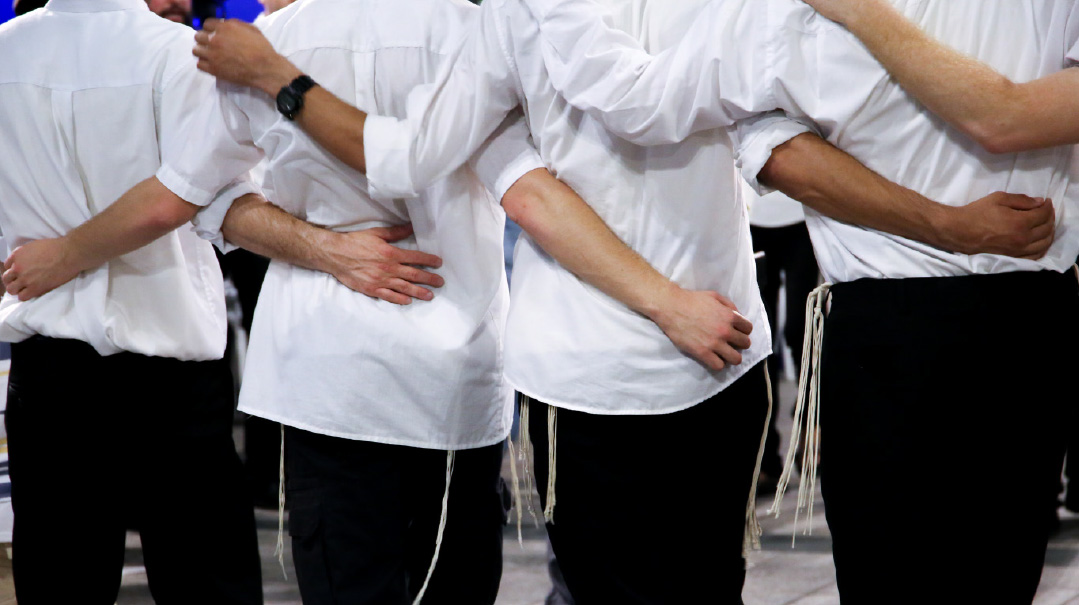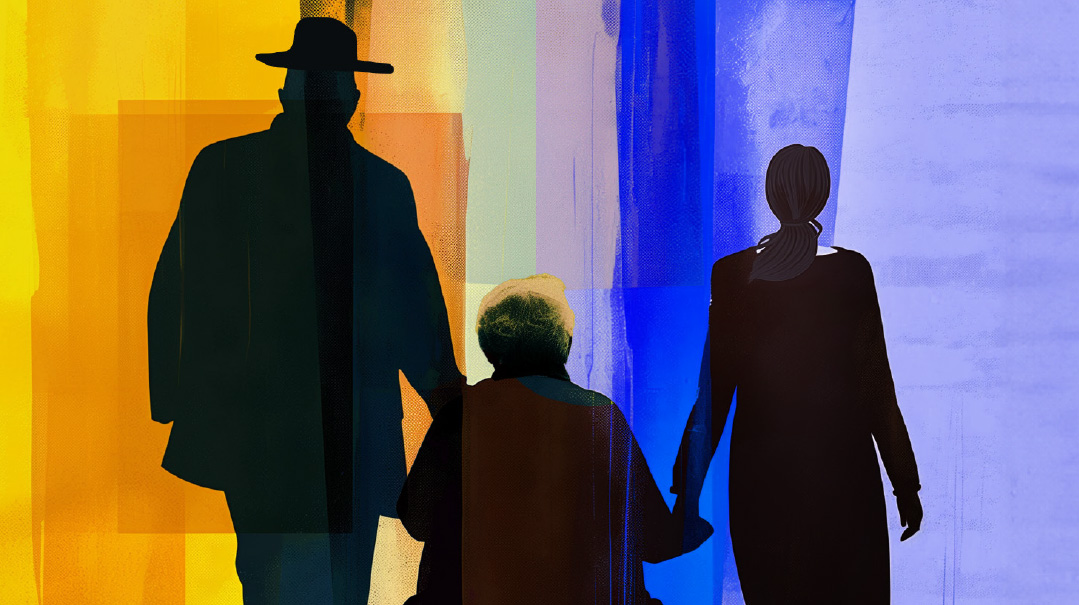Achdus Begins at Home: A Modest Proposal

Achdus and shalom are much harder to achieve in the personal sphere of families and friends

W
hen my daughter Miriam a”h unexpectedly got sick seven years ago, my husband and I were overwhelmed by the outpouring of community support. Everyone was dismayed by the news of a vibrant young mother of three fighting for her life, and people from all points on the religious spectrum began taking on different mitzvos in her merit: reading countless Tehillim, wearing longer skirts or shorter wigs, lighting Shabbos candles early.
During the first weeks, as Miriam teetered on the brink, an asifah was organized as a zechus for her refuah. For many people, it was life-changing. It was Chanukah time, and Rabbi Zecharia Wallerstein z”l spoke about the way Yosef Hatzaddik overcame his nature, his teva, when his brothers appeared in Egypt.
Yosef had every reason to be furious with his brothers and avenge himself on them. He been ostracized and then became the victim of a plot to kill him, which changed into a plan to sell him into slavery. Instead, Yosef put all the hatred behind him. He kissed his brothers and told them it was Hashem who caused them to sell him south so that the family could find refuge from the famine.
Yosef broke his teva to forgive his brothers, Rabbi Wallerstein said. If we want Hashem to work miracles on our behalf, we ourselves must prove ourselves capable of overcoming our teva as well. He told his audience: In the same way Yosef reconciled with his brothers, all of you should take it upon yourselves to make shalom with anyone you’re in conflict with. Break your teva, put aside your ego and your embarrassment, and repair your relationships if you want this sick young woman to get up from her bed and dance.
Rabbi Wallerstein spoke so passionately and eloquently that many people walked out of that room and immediately ran to fix broken relationships. We heard story after story of estranged business partners who made up, a sister who called a brother she hadn’t spoken to in ten years, neighbors who finally patched up their differences.
My daughter was never able to get up from her bed and dance. Her loss devastated our family, but we derived comfort from the knowledge that her suffering accomplished more shalom and mitzvah observance than many rabbanim accomplish over years of trying. It made us feel her death wasn’t completely in vain.
Today, seven years later, we Jews are in a situation of fighting for lives in Eretz Yisrael. Am Yisrael, like my daughter, needs zechuyos and yeshuos to survive. Many of us have committed to taking on more mitzvos or improving the ones we do already as a way to storm the heavens.
Tremendous leaps in shalom were created on October 7. The horror of the day extinguished all the acrimony and infighting we witnessed earlier this year and we reached commendable, crucial new heights of achdus, the silver lining to the otherwise blacker-than-black cloud of a massacre.
But achdus on a political and societal level, while magnificent and deeply essential, is relatively easy to achieve when we are collectively furious at the savage barbarians at our gates. It’s not hard to throw your arms around strangers you have no personal history with.
Achdus and shalom are much harder to achieve in the personal sphere of families and friends, where hurt feelings, pride, and fears of rejection keep a grip on us. So many of us, like Yosef Hatzaddik, have many valid reasons for remaining angry and estranged from close family and friends.
As a Mishpacha writer, I’m often approached by people who want to tell me their tales of struggle, and I hear so much pain. There are spouses who can’t get along, and acrimonious divorced couples whose children are the korbanos. There are parents who reject children who shame or disappoint them. There are children who reject their parents, citing “toxicity” or childhood wounds, and depriving them of contact with their grandchildren.
I understand that everyone has their reasons for being upset and angry, but to live without shalom among family and community is not a life. Can’t we follow Rabbi Wallerstein’s plea to break our teva and make shalom? If we are hoping for Hashem to go the extra mile for us, we need to go the extra mile for Him, overcoming our natural teva to stop allowing old hostilities to fester.
Video clips of nonreligious soldiers dancing with chareidim are heartwarming. But we have work to do on the home front too; achdus and shalom begin at home. For the merit of our soldiers, the release of the hostages, and the protection of our civilians, can we overcome our natural inclinations and yetzer hara and do our best to restore shalom in our homes and personal relationships? Then, whatever the outcome of this current war, we will at least have achieved huge spiritual milestones in our personal lives. We will have the comfort and merit of knowing that the sacrifice and suffering of so many of our fellow Jews has at least led to the repair of other broken pieces of the world.
L’illui nishmas Miriam bat Bracha v’Ariel Shlomo
(Originally featured in Mishpacha, Issue 986)
Oops! We could not locate your form.







